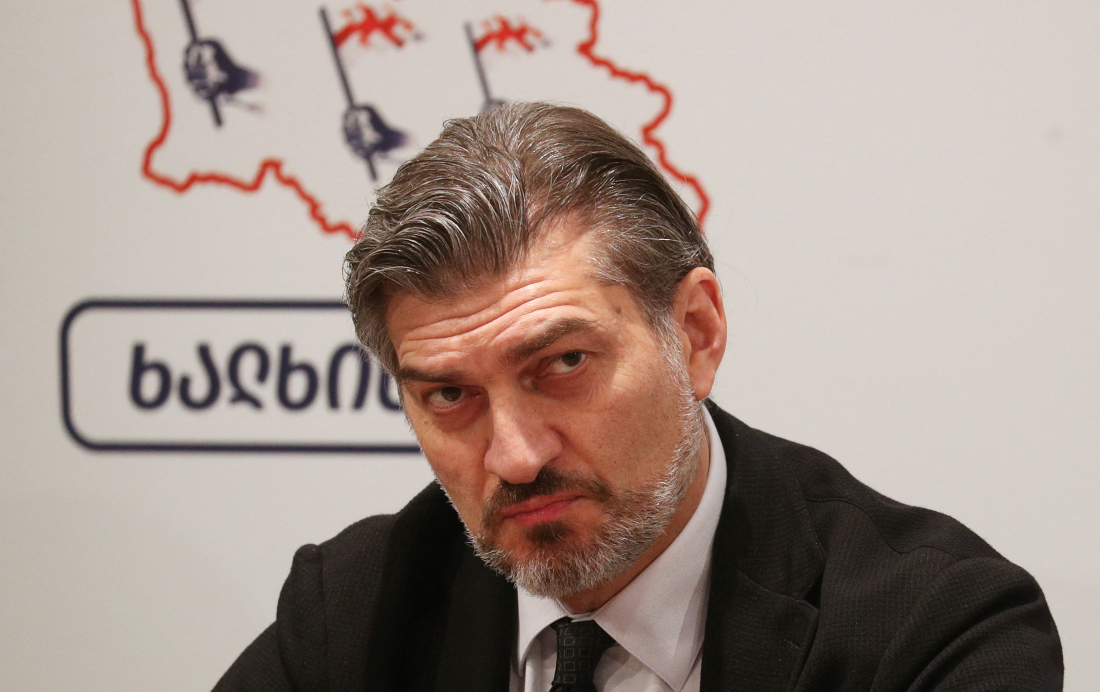'No red lines': Iran claims it has hit U.S. and allied bases after declaring them ‘legitimate target’
A senior Iranian official has warned Israel to “prepare for what is coming”, insisting that Tehran’s response to the latest escalation in the Mi...
Mikheil Kavelashvili has been elected as the sixth President of Georgia with 224 votes out of 300, amid ongoing protests and controversy over the legitimacy of the elections.
Mikheil Kavelashvili Elected President of Georgia Amid Protests
Mikheil Kavelashvili has been elected the sixth President of Georgia, receiving 224 votes out of 300 from the Electoral College in an election marked by protests and political tensions. The voting, conducted in the Georgian parliament, saw only one candidate—Kavelashvili, nominated by the ruling party, "Georgian Dream - Democratic Georgia."
The opposition, led by current President Salome Zurabishvili, has rejected the legitimacy of the election, labeling the parliament and government as unconstitutional. Protests erupted outside the parliament building during the vote, with demonstrators blocking streets and calling for new parliamentary elections. The parliament was heavily guarded by police amid the unrest.
A Symbolic Presidency
The role of the Georgian president is largely symbolic, with limited powers such as issuing pardons and vetoing laws. International representation by the president now requires government approval, following constitutional amendments that transitioned Georgia into a parliamentary republic in 2018.
Ongoing Protests
Protests in Georgia have persisted since late November, fueled by the government’s decision to delay EU accession negotiations until 2028. Demonstrators have accused the authorities of undermining Georgia’s European integration efforts. While initially marked by violent clashes, recent protests have become more subdued but remain widespread, with opposition groups and activists maintaining their stance against the ruling party.
Kavelashvili’s inauguration is set for December 29, but tensions continue to simmer. Outgoing President Salome Zurabishvili has refused to vacate the Orbeliani Palace, claiming she remains the country’s only legitimate representative until new parliamentary elections are held.
The political crisis raises questions about Georgia's democratic future and its path toward European integration, as protests and opposition to the ruling government show no signs of abating.

Tensions between the U.S. and Iran are escalating, with Washington ordering a significant military build-up in the region and multiple countries evacuating diplomatic staff amid fears of further instability.
The United States has begun "major combat operations" in Iran, President Donald Trump has confirmed, as Israel said it had launched a "pre-emptive" missile strike against Iranian targets.
Russian President Vladimir Putin’s special envoy, Kirill Dmitriev, arrived in Geneva and may hold talks with U.S. officials, according to the RIA news agency.
Ankara has rejected media reports claiming it plans to deploy military forces into Iranian territory in the event of a U.S. attack on the Islamic republic.
Two people were killed and around 40 injured when a tram derailed in central Milan on Friday (27 February), a spokesperson for the local fire service said.
A senior Iranian official has warned Israel to “prepare for what is coming”, insisting that Tehran’s response to the latest escalation in the Middle East will be made openly and without limits.
Cuba has released extensive details of a deadly midweek shootout at sea, showing rifles, pistols and nearly 13,000 rounds of ammunition that it says were carried by a group of exiles who attempted to enter the island by speedboat.
Afghanistan’s Taliban rulers said on Friday (27 February) they were ready to negotiate after Pakistan bombed their forces in several Afghan cities, including Kabul and Kandahar, and Islamabad declared the neighbours were now in "open war".
Tensions between the U.S. and Iran are escalating, with Washington ordering a significant military build-up in the region and multiple countries evacuating diplomatic staff amid fears of further instability.
Two people were killed and around 40 injured when a tram derailed in central Milan on Friday (27 February), a spokesperson for the local fire service said.
You can download the AnewZ application from Play Store and the App Store.

What is your opinion on this topic?
Leave the first comment